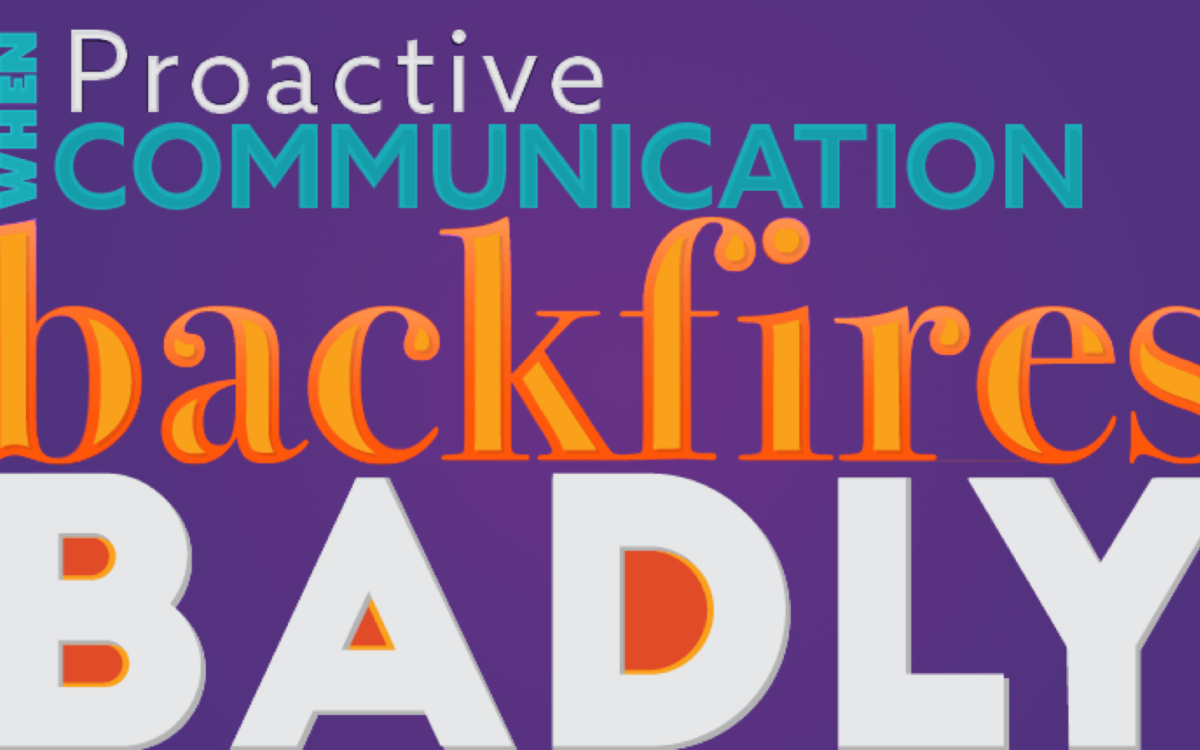
When Proactive Communication Backfires—Badly
When Proactive Communication Backfires—Badly
A script can be comforting to work with, but it can be fun and empowering to work off-script as well. Proactive communication, done right, can help the agent deliver great customer service and increase a caller’s happiness level.
But proactive communication can also go very, very wrong. Failing to read a situation properly can be even more damaging than if your agent had just stuck to the script in the first place. Especially in situations like these:
Mistimed offers
Everyone likes a special offer, right?
Wrong!
Proactive communication works best when it’s tailored to a specific customer. The less your agent knows about the customer, the more risk associated with any sort of offer.
Let’s say for example an agent is talking to a customer who simply wants to pay their phone bill. The agent helps them with the transaction, and then offers to set up a home internet account as well. Their intentions are good—combining the two packages is cheaper overall and it makes sense.
What your agent didn’t know was that the customer did have a home internet account, but they canceled it due to a previous complaint. The agent just took a simple, one-step transaction and soured the entire call because they acted on an assumption.
The solution? Give the agent deep customer information to ensure any offer is appropriate to the situation.
Upselling a complaint
Just like special offers, upselling can only be done when the mood is right.
Let’s take the home internet example from earlier and apply it here. A customer calls to complain about their slow service. The right thing to do is accept the complaint, make sure the customer feels their grievances are heard and handle the situation with the necessary actions.
Instead, your agent says, “Sorry to hear that. Would you like to upgrade to a service package with higher download speed?”
Cringe.
Asking a customer to upgrade their service may give the impression that it’s the only solution, which would make the situation increasingly worse. A customer doesn’t want to feel as if what they are paying for is inadequate–or ineffective. They may also feel that you’re using (or worse… causing) their complaint to squeeze more money out of them. That’s proactive communication at its worst!
The agents need to use their best judgment to build trust and relationship rather than trying to upsell in a negative situation.
Good rapport or bad report?
Rapport is the oil that greases a customer support call. Good rapport defuses difficult conversations and enhances good ones. Bad rapport makes the gears seize up and brings the whole thing crashing down, which may even lead to an incident report.
Agents fall flat the most when they try to use humor. Humor is very subjective, and extremely difficult to deliver when not face-to-face. One man’s joke is another man’s insult. There’s a growing list of possibly offensive topics: politics, beliefs, current events… it’s easy to slip if an agent isn’t working thoughtfully. In any case, the best experiences happen when an agent keeps it simple, professional, and to the point. Customers aren’t reaching out to be entertained, after all.
Stick to safe topics when trying to build rapport. Provide agents a go-to list of engaging questions they can ask as they work with customers. This helps them focus their minds on their work, and it’ll help make sure they don’t skate too close to the thin ice.
The Nutshell
Being a proactive communicator as an agent can drastically improve the customer experience and help de-escalate a lot of customer issues–when used correctly. But there’s a fine line…falling victim to the many proactive communication pitfalls could result in only making the situation worse. These days, it’s more important than ever to monitor all types of interactions so issues can be addressed and coached right away so agents are comfortable, cordial and always at their best.

